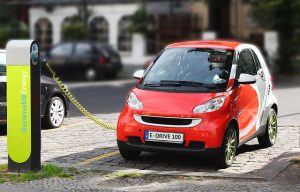Cost, power issues mean the world is not ready
November 2, 2022
As electric cars become increasingly popular and favorable, it is necessary to consider the cost of the process to create and fuel these vehicles.
Electric cars are powered by electricity, and the vast majority of this electricity currently is produced by burning of fossil fuels, particularly coal.
Also, the current pricing of most electric vehicles on the market is not affordable for middle- or lower-class families. For electric cars to even be a viable option for many families, they have to be affordable, first and foremost.
Further, the infrastructure present in the United States is not powerful enough to handle the amount of electricity that would need to be supplied if everyone were to convert to electric cars.
Powering millions of electric cars would mean everyone using a much larger amount of electricity. The already outdated and weak electrical grids would be overwhelmed by such a massive influx of new power usage.
Power grids in populated areas across the country are already struggling to hold up the current amount of energy used by people on a regular basis, as shown by the brownouts and blackouts that occur in cities.
Additionally, the creation of the cars themselves ends up burning a lot of fossil fuels. The process of harvesting the materials required to do so also raises a number of humanitarian concerns.
Corporations have rushed to mine the minerals needed to produce electric car batteries, such as lithium and nickel. The mining of these minerals requires consistent work by gas-guzzling construction vehicles.
Even worse, the corporations mining these minerals are often targeting less developed countries as the place for their operations. In doing so, they disrupt local communities and hire workers for inhumane wages.
Although the push by many for more usage of electric cars is done with good intentions, the downsides of the process negate the presumed gain.


